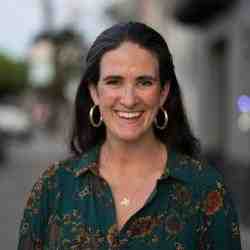Blue Point Drug Counseling Center / Kék Pont Drogkonzultációs Központ és Drogambulancia Alapítvány
https://www.kekpont.huIntroduction
József Rácz is developing voluntary, community- and peer-based forms of treatment for underprivileged Hungarian drug addicts living in large housing projects.
The New Idea
József Rácz has initiated a system to acknowledge and treat the growing problem of drug addiction among the Hungarian urban underclass. His model forms a bridge of trust with addicts and enfolds their addiction within a set of community services that includes peer counseling from graduates of the program.
József's model relies on voluntary participation and does not require abstinence in order to enter the program. In these ways and in its community base, it contrasts with the highly institutionalized and punitive character of established drug treatment in Hungary. It is the first in the country to incorporate former drug users into the treatment process. This promises to lower the rate of re-addiction, which has been an intractable problem in the old system. József is helping to construct a health care system in his country that is designed to engage with the realities of its users' needs.
The Problem
Drug addiction continues to grow in Hungary. An estimated six percent of Budapest's population is believed to be addicted to some form of narcotics. Of this six percent, nearly one quarter is addicted to heroin. Hungary also has approximately one million alcoholics, about ten percent of the country's population.
Under the Communist regime, the problem was largely limited to inexpensive habits such as alcohol abuse and glue-sniffing. However, the situation has steadily worsened since 1989, as expensive drugs like heroin and cocaine have become more available. Related crimes, like theft and homicide, have increased accordingly.
In the past, drug addicts were treated as criminals, because they were considered dangerous to the ideals of a "perfect" society. In fact, the Communist government denied that a drug existed. Often the only method of treatment involved institutionalization or prison. The sudden and traumatic deprivation of the addictive substance, without any support or supplemental counseling, results in acute physical and mental withdrawal symptoms. This method has two very serious consequences: one is a high level of re-addiction; the other is that it makes addicts reluctant to seek treatment. Sadly, despite some reform, the current health care system retains much of its Communist legacy, and has done little to alter its approach toward drug rehabilitation.
The Strategy
Concerned about the rising tide of drug abuse in Hungary, József initiated his revolutionary approach to drug treatment. His counseling center was established in the "Havana" housing project. One of Budapest's poorest and most troubled areas, Havana has a population of some 20,000, of whom an estimated 8,000 are young people. József and his team began their work by frequenting the bars and other places favored by drug addicts and confronting them in a very personal way about their addiction problems. They then offered the alternative community based treatment instead of the state-run care system. By working within the community, he and his team gained credibility and the trust of the residents, and people began voluntarily approaching the center for assistance. Graduates of the program had the opportunity to work at one of the centers as counselors, furthering their own success by helping other addicts.
The initial success of the Havana counseling center was a very important step for which József received a great deal of attention from the media. As a result József is now finding it somewhat easier to attract funds from both the government and private foundations. Furthermore, this attention has initiated responses from leaders and community activists in similar underprivileged areas asking for József's help in beginning their own projects. This network of centers now serves the entire Budapest metropolitan area, from which it is spreading to the rest of the country.
In addition to his work with addicts, József trains doctors and psychotherapists in his techniques. He also frequently visits schools to talk to students about drug addiction. He hope that by doing so he can help prevent young people from using drugs.
The Person
József is a trained psychotherapist who has worked for years in hospitals with drug addicts. He became involved with the issue in the late 1970's as a university student who did research, forbidden at the time, on the increasing visible problem of homelessness and street people in Budapest. Although homelessness existed and was increasing in Hungary, the regime refused to acknowledge it because it was deemed to be a problem of the "decadent" West and not of the "perfect" societies of the Soviet bloc. Therefore, József ran the risk that his research would be officially disapproved, which under the Communist regime could have jeopardized his career.
Nevertheless, he organized a team from the university who studied the problems of the homeless. He concluded from his research that there is a direct correlation between drug addiction and homelessness. However, because the government refused to even acknowledge the problem, József could do little about it until the political climate changed in 1989. Under the new regime that followed the velvet revolution József had his first opportunity to experiment with his new techniques to help addicts.



